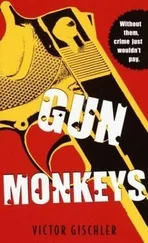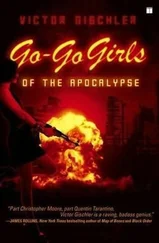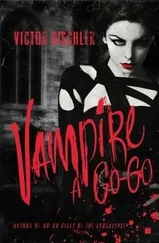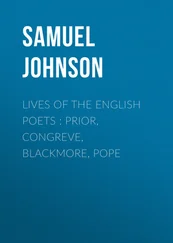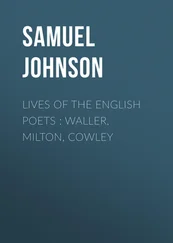The three of them huddled against the blizzard, looked back at the door they’d used to escape Albatross Hall. DelPrego did not come out. “Maybe he took a wrong turn,” Morgan shouted over the blizzard. “H-he was r-r-right b-behind us.” Valentine had fled the building with only a light jacket. He was turning blue. “His eyes,” Jenks said. “He had a crazy look. I think he’s going to do something.” “Can someone please tell me what in the hell just happened?” Morgan asked. “Get himself killed,” Jenks said, still thinking of DelPrego. “I better find him before-” “D-don’t be a f-fool,” Valentine said. “You can’t go back in-” Valentine’s head jerked around. Morgan and Jenks followed his gaze. Distantly, figures took shape. They manifested out of the fog like floating stones, great, hard, square chunks of granite. Shoulders. Hands deep into the pockets of their long dark coats, hats pulled low to cover eyes. A ragged line of them moving forward, taking form as they stepped into the feeble lamplight. They did not heed wind or cold, only advanced like a silent, grim tide. Eight of them; no, ten. A dozen square-jawed ghosts. “Jesus,” Morgan said. “He ain’t going to help you.” Jenks’s hand tightened on his pistol. Valentine clutched the shotgun to his chest. “No shells l-left.” They marched toward Morgan, Jenks, and Valentine. Behind the line of men came another figure. He was small, bent against the cutting wind, thin hand holding a cloth cap on his bald head. He held on to the arm of one of the bruisers. The small man came within three feet of Morgan and stopped. “The reading went well,” Fred Jones said. “I should kick your ass, but I enjoyed it.” “Who are these men?” Morgan asked. A blast of wind sprayed the group with sleet. Bob Smith had to use both hands to keep Jones from flying away. Jones’s thugs continued to march past. “The kid told me about his troubles.” Jones nodded at Jenks. “I called a few old pals to come help.” Jones turned to Valentine. “A guy from University of Arkansas Press was there. Asked me if I had enough stuff for a whole book.” Morgan’s mouth fell open. “That’s m-most fortunate,” Valentine said. “You’re going to freeze your balls off,” Jones said. “Bob, bring the car around and pick us up.” “Right, boss.” Smith lumbered back into the blizzard. “The weather’s going to keep the cops off our backs for a little bit, but we got to move fast,” Jones said. “My guys will finish here. They know what to do.” Jenks yanked on Morgan’s sleeve. “Wayne.” Morgan said, “One of my students is still in there.” “I got to look for him,” Jenks told Jones. “Nunzio!” Jones waved over one of the long coats. The guy had big, red cheeks, black eyes. “Mr. Jones?” Jones jerked a thumb at Jenks. “Take this guy inside. He lost a lamb. Make sure he ain’t shot by accident.” “Right. This way, kid.” Morgan watched Nunzio lead Jenks back into Albatross Hall. The building looked like something out of an Edgar Allan Poe tale-dark stone, windows like vacant eyes, the snow piling at the corners. Morgan looked down, saw that Jones had latched on to his arm. He’d been holding the old man up. Morgan hooked arms with Jones, stood close to shield him from the wind. Jones let him. Jones craned his neck, lifted his mouth toward Morgan’s ear. The old man was trying to tell him something. Morgan leaned forward, cupped his free hand around his ear to block the howling storm. “You got to help me get my book into shape to show this Arkansas Press guy,” Jones said. “He says he’ll leave a slot in the schedule open this fall.” Morgan said he’d help. Dull gun blasts echoed from within Albatross Hall. Blue light flashed in the windows. “W-what are they doing?” asked Valentine. “Sweeping up,” Jones said. A sudden flurry of shots like a spurt of microwave popcorn, flashes from the third floor. Jones’s car pulled up on the sidewalk with Smith at the wheel. The big sedan carved dirty furrows in the white snow. Morgan opened the door for Jones. Valentine went around the other side. They climbed into the car, sighed relief at the warmth. “Are they going to be okay?” Morgan looked at the dark windows of Albatross Hall. “They’ll be fine,” Jones said. “I need some soup.” Under the car’s interior light, Morgan took a good look at the old man. His lips were blue, breathing shallow. Morgan took his hands. They were lumps of hard ice. “You okay?” “I can’t feel them.” Morgan put the hands between his own, rubbed hard. “It was like you said,” Jones muttered. “When I knew I had the crowd. They loved it. I could feel them. It was the best I ever felt.” His voice was fading. Morgan pulled the old man close, tried to give him body heat. This little, gnarled poet. Morgan’s deus ex machina hero.
Jenks knelt on the cold tile next to DelPrego’s body. His head ached from holding back the tears. Finally, he gave up, let them roll hot and salty down his cheeks and over his lips. Down the hall, Nunzio dragged a gangster’s body by the ankle, pulled him to the edge of the pile of bodies the hoods were making. It had been at least five minutes since Jenks had heard gunshots. Jenks pushed himself to his feet. He felt tired, a hundred years old, like he’d been awake for a week. He looked at the last body Nunzio had put on the pile. “You know any of these?” Nunzio’s hand swept over the pile. “A few,” Jenks said. “The one on top is Red Zach.” Jenks studied Zach, the slack, expressionless face. Eyes glassy and dull. It seemed impossible that this man had ruled his life. It was a hundred years ago he’d been Zach’s go boy, running errands. He had even hoped to be like Zach one day, but now the man was only cold bones and loose flesh and an already fading memory of fear. The cocaine was gone. Red Zach gone. Even Sherman Ellis was gone, with no family to remember him. It was all gone. For Harold Jenks, only the whole, wide world remained.
It took an hour for Bob Smith to drive Morgan home. None of Fumbee’s stoplights worked. Power was out in various neighborhoods. Fortunately, the roads were nearly deserted, most folks having enough sense to stay at home.
Jones regained some of his color and his voice was stronger. The sedan had good heat and Smith flipped it to full blast. Jones offered Valentine a spare bedroom and the old professor gladly accepted.
Morgan’s porch light told him he was one of the fortunate few who still had electricity. He bid everyone good night, rushed up the steps and into his little house. He found the thermostat and thumbed the heat up until it clicked on. He stood over one of the vents, let it blow warm air up his pant legs.
He moved into the kitchen, rummaged every cabinet until he finally tuned up a half-full bottle of Cutty Sark he didn’t remember buying. He filled a juice glass and sat at the kitchen table still wearing his coat. Valentine had told Morgan about Jenks. That was the kid’s name. Harold Jenks. Morgan still wasn’t sure he understood what had happened.
He wondered if Ginny were okay, vaguely wished she were with him. He didn’t feel like being alone, wasn’t really sure how he felt. His night had been a horror of dead bodies, yet Morgan felt relief he wasn’t one of them. He’d begun this mess with Jones bailing him out, hiding Annie Walsh’s body. Morgan could no longer remember Annie’s face. It didn’t seem like part of the same life.
Now Jones had bailed him out again, even given him a ride home. A strange, sweet, odd old man. Morgan drained the Cutty Sark.
He was so tired but forced himself to shower. The hot water felt good.
No towel on the rack when he stepped out of the shower. He dripped and shivered as he walked to the hall closet, feet slapping wet on the floor.
Читать дальше


